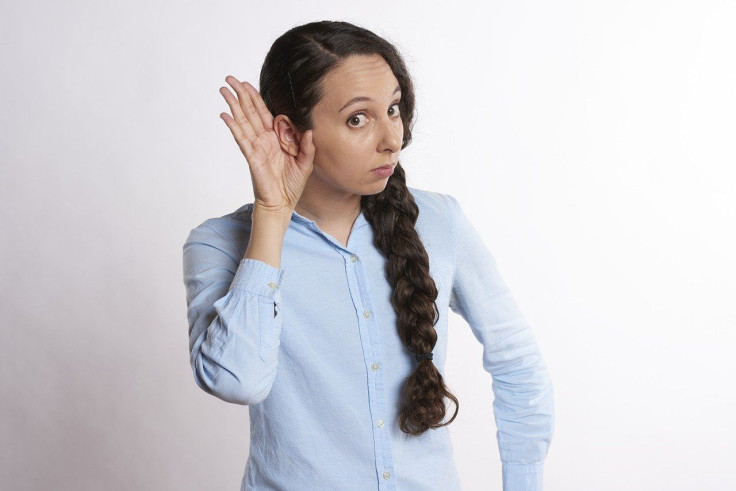Coronavirus Update: Some Recovered Patients Suffer From Hearing Problems, Study Finds

KEY POINTS
- Lingering hearing problems seem to be the most recently observed after effect of COVID-19
- According to a study, 13% of the patients reviewed said their hearing got worse
- Some of them had tinnitus or ringing in the ears
Many recovering COVID-19 patients report lingering hearing problems, raising the possibility of yet another after effect of the infection.
British scientists revealed another possible consequence of COVID-19 as patients reported experiencing hearing problems long after they recovered. In their study called "Coronavirus: Why We’re Investigating the Long-Term Impact on Hearing," researchers conducted a phone survey of 120 patients in the United Kingdom who were hospitalized due to COVID-19.
When asked if they experienced any hearing changes, 13% of the patients said it got worse, US News & World Reports revealed. Eight of them reported their hearing deteriorated, while another eight had tinnitus or ringing in the ears.
"We already know that viruses such as measles, mumps, and meningitis can cause hearing loss, and coronaviruses can damage the nerves that carry information to and from the brain," said Kevin Munro, lead researcher of the study and a University of Manchester professor of audiology.
In a university news release, Munro stated, in theory, it is possible coronavirus infection may cause problems with some parts of the auditory system, which include the cochlea or middle ear. Conditions like auditory neuropathy make it hard for one to hear over background noise. Auditory neuropathy is a hearing problem where the cochlea is functioning but there is a deficiency in the auditory nerve's transmission to the brain. Guillain-Barre syndrome, which is believed to be a side effect of COVID-19, is also linked to auditory neuropathy.
However, researchers noted they need to conduct more studies to properly determine how the virus impacts hearing.
"While we are reasonably confident in the differentiation of preexisting and recent changes in hearing and tinnitus, we urge caution," the lead researcher said.
He added there is also a possibility that aside from COVID-19, other factors may also affect pre-existing tinnitus and hearing loss. These include medications used to treat the infection, constant use of face masks which makes communication difficult, stress and anxiety and other factors related to severe complications.
Munro said it is vital not to diagnose hearing problems where it does not exist or merely coincidental given the high rate of coronavirus infection in the population. On the other hand, their study's findings may simply be the start of an understanding of the health condition and its side-effects. He revealed due to the need to provide timely evidence for policy-makers on this crucial and developing health concern, they are planning to repeat their COVID-19 and hearing loss review at systematic intervals soon.
© Copyright IBTimes 2025. All rights reserved.





















